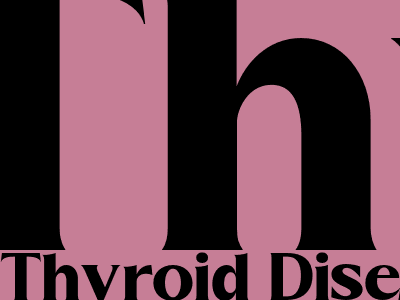How to Manage Thyroid Disease
What is Thyroid Disease?
Thyroid disease is a condition that affects the thyroid gland, a small gland in the neck that produces hormones that regulate metabolism, growth, and development. Thyroid disease can cause a variety of symptoms, including:
- Weight gain or loss
- Changes in appetite
- Fatigue
- Difficulty sleeping
- Mood swings
- Muscle weakness
- Constipation or diarrhea
- Changes in menstrual cycles
- Infertility
- Hoarseness
- Swelling in the neck
Types of Thyroid Disease
There are two main types of thyroid disease:
- Hyperthyroidism occurs when the thyroid gland produces too much thyroid hormone. This can lead to a variety of symptoms, including:
- Weight loss
- Increased appetite
- Rapid heart rate
- Nervousness or anxiety
- Difficulty sleeping
- Muscle weakness
- Diarrhea
- Hypothyroidism occurs when the thyroid gland does not produce enough thyroid hormone. This can lead to a variety of symptoms, including:
- Weight gain
- Decreased appetite
- Slow heart rate
- Fatigue
- Difficulty sleeping
- Constipation
- Dry skin
- Hair loss
- Brittle nails
- Menstrual irregularities
- Infertility
Causes of Thyroid Disease
The exact cause of thyroid disease is often unknown, but there are a number of risk factors that can increase the likelihood of developing the condition, including:
- Family history: Thyroid disease can run in families, so if you have a close relative with the condition, you are more likely to develop it yourself.
- Autoimmune disorders: Thyroid disease is often caused by autoimmune disorders, in which the body's immune system attacks the thyroid gland.
- Iodine deficiency: Iodine is an essential nutrient for thyroid hormone production, so a deficiency of iodine can lead to thyroid disease.
- Certain medications: Some medications, such as lithium and amiodarone, can interfere with thyroid hormone production.
- Radiation exposure: Exposure to radiation, such as from X-rays or nuclear fallout, can damage the thyroid gland and lead to thyroid disease.
Diagnosis of Thyroid Disease
Thyroid disease is diagnosed with a blood test that measures the levels of thyroid hormones in the blood. The doctor may also order other tests, such as an ultrasound of the thyroid gland or a thyroid scan, to confirm the diagnosis.
Treatment of Thyroid Disease
The treatment for thyroid disease depends on the type of thyroid disease and the severity of the symptoms. Treatment for hyperthyroidism may include:
- Medication: Antithyroid medications can be used to block the production of thyroid hormone.
- Radioactive iodine: Radioactive iodine can be used to destroy the thyroid gland.
- Surgery: Surgery may be necessary to remove the thyroid gland.
Treatment for hypothyroidism may include:
- Medication: Thyroid hormone replacement medication can be used to replace the thyroid hormone that the body is not producing.
- Diet: A diet that is rich in iodine can help to prevent hypothyroidism.
Outlook for Thyroid Disease
With proper treatment, most people with thyroid disease can live a normal, healthy life. However, it is important to follow the doctor's instructions carefully and to take medication as prescribed.

Komentar